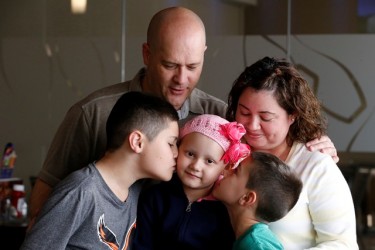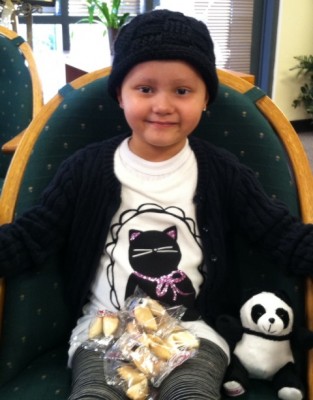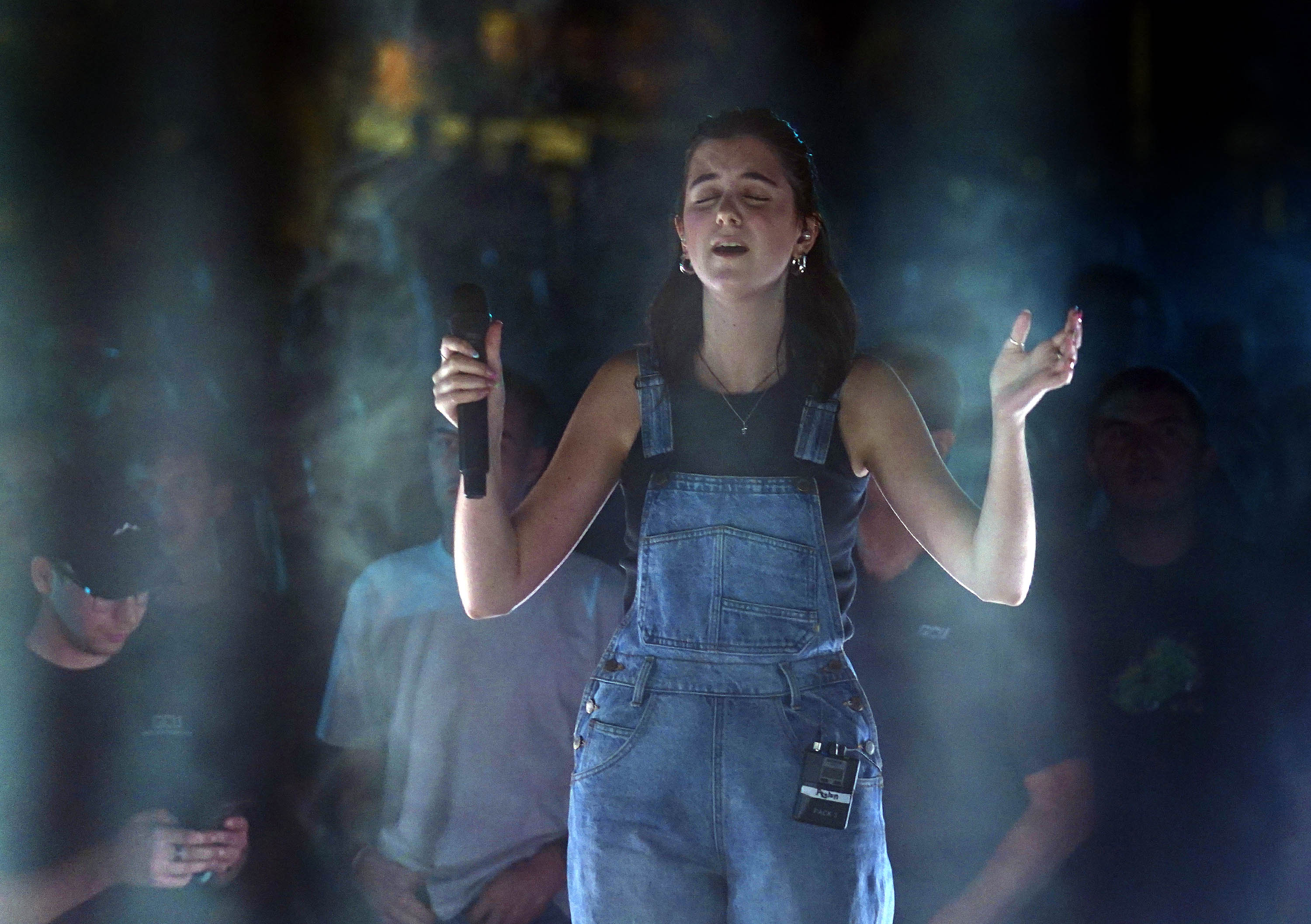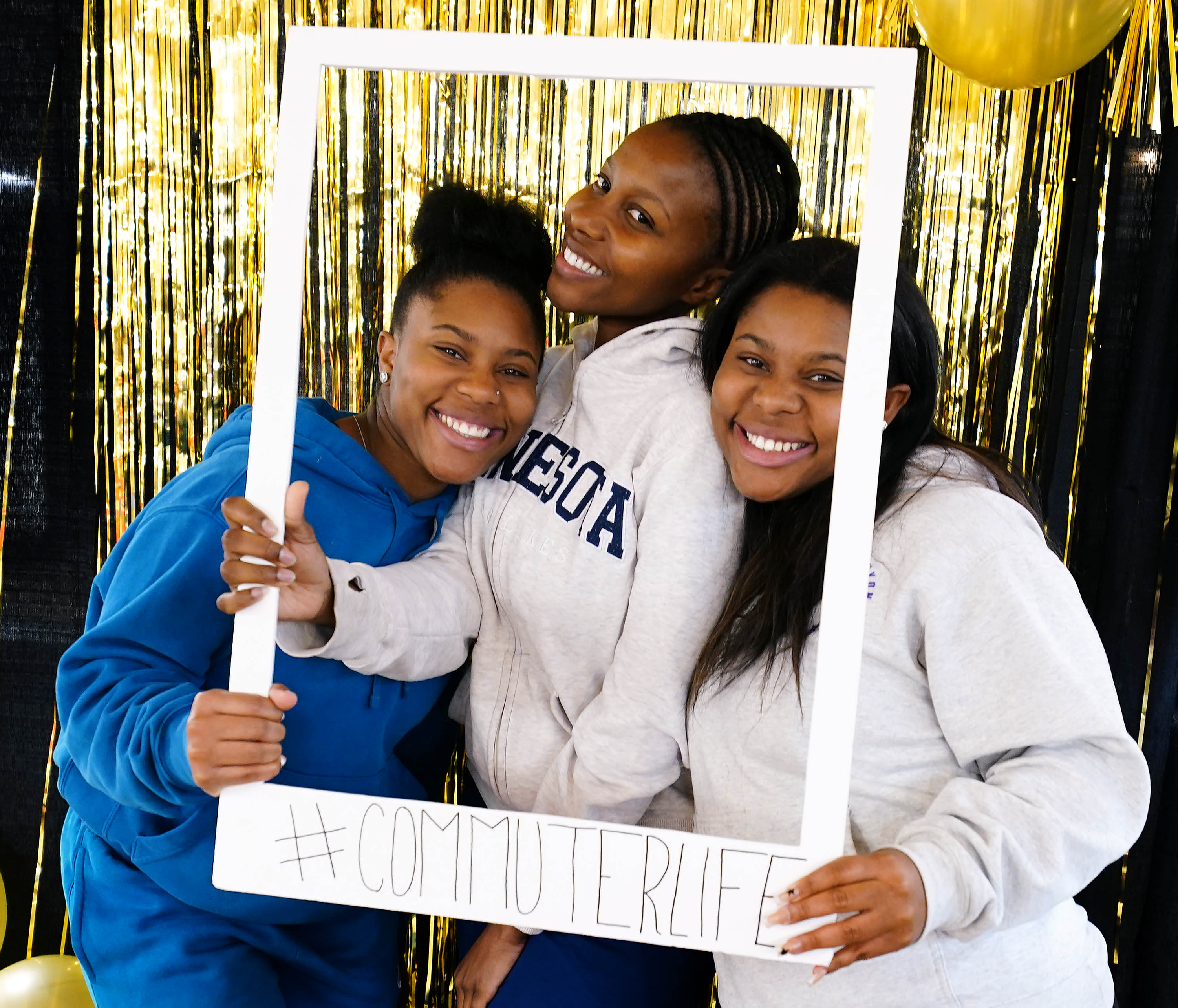By Janie Magruder
GCU News Bureau
Jimmy Bryant couldn’t believe his ears.
The emergency room nurse at Chandler Regional Hospital, who just minutes before had pulled Bryant’s young daughter from his arms, returned after the child’s CT scan and asked him, “How much do you weigh?”
His dazed look prompted the nurse to add, “We have to fly your daughter out of here on a helicopter, and we want to know if there’s room for you. We’ve got 30 minutes left. We need to get her out of here now.”

So began the Bryant family’s battle with childhood cancer on May 14, 2014. The disease and ensuing aggressive treatment initially robbed the then first-grader of her sight, speech, balance and long, beautiful hair, and the road to recovery is expected to be years long.
But this comeback kid has a standout smile — highlighted by a jumble of incoming adult teeth — a sweet song on her lips and a bounce in her step that seem miraculous. And Mia has a new job as honorary race starter for the fifth annual Grand Canyon University Foundation Run to Fight Children’s Cancer on Saturday, March 7, on GCU’s campus in west Phoenix. Information about the event, which benefits Children’s Cancer Network and Phoenix Children’s Hospital, is available here.
From headache to hospital to healing
A year ago, Mia was a shy but strong-willed 6-year-old, sandwiched between an older brother and a younger one, the apple of her daddy’s eye. She was the healthy one in the family. But one afternoon last spring, just as school at Galveston Elementary in Chandler was about to let out for the summer, Mia came down with a searing headache.
“She was screaming, crying,” said her mother, Miriam. “And then she said, ‘I can’t see. I’m blind.’”
Jimmy rushed Mia to urgent care, which sent them on to the hospital. As she was being airlifted to Phoenix Children’s Hospital (PCH), Jimmy picked up Miriam and raced downtown to meet the medical staff on the cancer floor. The news wasn’t good: Mia had a brain tumor, and it had ruptured, flooding her brain with blood and necessitating a blood transfusion.
During a four-hour surgery, the entire mass was removed, and it was determined that Mia suffered from posterior fossa syndrome, for which there is no known cause.
“I was waiting for the doctor to come out and say something like, ‘She died,’” Miriam said. “It was fear, and I still have that fear. Everybody is telling me to have faith, but nobody knows how I feel.”
Patti and Steve Luttrell do. Their son, Jeff, was diagnosed with leukemia at age 5. Jeff has had numerous rounds of chemotherapy and radiation as well as a bone marrow transplant to treat his cancer and recurrences of it. Now 26, he has experienced several occurrences of a secondary cancer that he has fought with additional radiation and surgeries, most recently in December.
When Jeff was diagnosed, almost no educational services and resources were available to Arizona children battling cancer and their families. The Luttrells, with their daughter, Jenny, changed that, creating the nonprofit Children’s Cancer Network (CCN), which provides multiple levels of support.
For example, CCN distributes gas and food gift cards valued at nearly $50,000 each year to families, and it has awarded more than 100 college scholarships to childhood cancer survivors. It adopts dozens of families at Christmas and gives little patients headed to the hospital admission backpacks containing practical necessities and reassuring comforts. Last year, CCN committed $100,000 in research grants to PCH’s Ronald A. Matricaria Institute of Molecular Medicine to help improve diagnostic tools and treatment of childhood cancer.
The Run to Fight Children’s Cancer has helped make these services possible and has raised awareness of childhood cancer, the leading cause of death by disease among children ages 14 and younger in the United States.
After Mia’s diagnosis, CCN rallied around her and her family with love, support and even a long, dark wig that is similar to her own hair. Luttrell said the Bryant family is courageous and inspiring.
“The startling and unsettling diagnosis of cancer is a life-changing event for everyone in the family,” Luttrell said. “Mia and her family are working hard to cope with the changes, find hope and begin each day together with a smile. Sometimes, that is no easy task.”
Learning to cope with cancer
Mia was hospitalized for three months after her surgery, the first 30 days in the intensive care unit. During that time, she was unable to walk, talk or otherwise communicate because of the syndrome, which can cause mutism, decreased motor movement, palsy and excessive emotional outbursts. The child frequently was agitated, yanked on her IV tubes and struggled to heal. Those months are a blur to Mia, who said, “I did not like it.”
Mia’s vision returned, but the ensuing 31 radiation treatments robbed her of the ability to walk and talk. She began physical, occupational and therapy and just last week (Jan. 21) finished her fifth of nine chemotherapy treatments. They are scheduled to end in August, the same month Mia turns 8.
“It’s hard for me to see her go through all that,” Miriam said. “I’ve been depressed, scared and worried about her, and it’s not over yet.”
However, Jimmy said, they are encouraged that the tumor was fully removed and that no cancer cells have been detected in her brain or spine. Doctors told Mia’s parents that children of her age with this disease have a 75-80 percent chance of survival. Mia says that, when her hair grows back and the medicine port is removed from her body, she’ll be free.
“I would have never believed for a second that something like this would happen to her, and I didn’t think I could handle that,” Jimmy said. “But every fork in the road, we could have gone worse and we’ve gone better, and that’s been really amazing to me.”
Also remarkable are the changes in Mia’s personality, mannerisms and skills. Whereas B.C. (before cancer), she would never have danced and sung in front of strangers, she now does that with very little prompting. Her face is more expressive and she speaks more slowly. She has learned sign language.
Mia also has taken on more responsibility for herself. She tries to troubleshoot issues with the medical monitors in her room, reminds her mom when it’s time for medicine and, too soon for Miriam, wanted to sleep in her own bed after she came home from the hospital.
“It’s like having a new child almost,” Jimmy said.
Adds Mia, “I still like to do the same things, I’m just not afraid to show it.”
Children with cancer lose control over their own lives, but they find ways to take back some of it, Luttrell said. “There’s something empowering to them about going through this, and I think they often feel like, “OK, why not?”
Tough for sons, too
The Bryants’ sons, Jimmy, 11, and Jacob, 6, have had some difficulty adjusting to the focus on their sister and the changes to the family’s order.
“They are feeling neglected a bit, and I’m trying to do extra things — father/son day, one-on-one attention with each of them — but I know I need to do more,” their dad said.
The couple said they are indebted to PCH and CCN for helping them feel like members of a family, not like patients or clients. Because of PCH’s Rooms of Joy program, Mia is having her bedroom redecorated in pink and purple and with princesses, and Make-a-Wish is sending the family on a Disney Cruise.
In the past six weeks, other families whom Miriam and Jimmy have gotten to know during their daughter’s illness have lost four children to the disease. Jimmy can’t imagine how they’re getting through it.
“The doctor told us that every day was not going to be a good day, but so far, for us, every day has been a good day,” he said. “We’re taking it one day at a time.”
Contact Janie Magruder at 602-639-8018 or j[email protected].

















